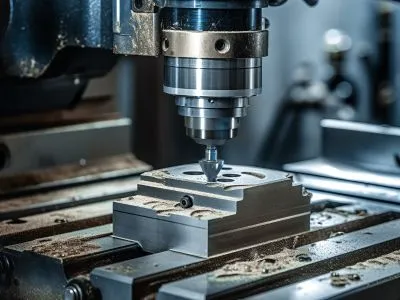 Precision machining encompasses an extensive array of advanced manufacturing technologies that enable the creation of parts with incredibly tight tolerances. Among these methods, CNC milling emerges as a highly sophisticated automated process that pushes the limits of precision engineering.
Precision machining encompasses an extensive array of advanced manufacturing technologies that enable the creation of parts with incredibly tight tolerances. Among these methods, CNC milling emerges as a highly sophisticated automated process that pushes the limits of precision engineering.
Although CNC milling shares its foundation with traditional machining practices, its computer-controlled nature distinguishes it by offering unmatched levels of automation, accuracy, and adaptability.
Key Distinctions Between CNC Machining and Precision Machining
Here are some of the primary differences between CNC machining and precision machining:
Tolerances
Precision machining is capable of achieving much tighter tolerances—sometimes even down to tens of microns—while general CNC machining typically cannot match those standards. Precision machining becomes essential when tolerances below 0.01mm are necessary.
Surface Finishes
Precision machining delivers superior surface finishes compared to standard CNC machining. The finishes achieved through precision machining are often measured in Ra (micrometers), whereas general CNC machining cannot reach the same degree of smoothness.
Operator Involvement
Precision machining combines both computer-controlled (CNC) systems and manual techniques executed by highly skilled machinists. Conversely, general CNC machining relies entirely on automated machinery with minimal operator intervention.
Production Volume
General CNC machining is well-suited for large-scale production runs, whereas precision machining serves both low-volume prototyping and mid-range production needs. For very small batches—fewer than 50 units—traditional precision machining methods might incur lower setup costs compared to CNC approaches.
Part Complexity
Precision machining is required for intricate parts demanding strict tolerances and specialized operations such as drilling, milling, turning, and grinding, which cannot be accomplished using general CNC techniques. Simpler components can generally be fabricated via standard CNC machining.
Consistency Across Batches
Precision machining guarantees greater consistency and uniformity across different batches due to reduced variability from human operators. While general CNC machining offers reliable repeatability, it does not achieve the same level of precision as precision machining.
CNC milling proves optimal for producing precision-machined parts with extreme tolerances or high-volume requirements. Nevertheless, precision machining remains indispensable for creating unique prototypes or handling specialized tasks.
If you require prototyping, precision CNC machining, or production runs of complex metal components in the USA, Cheetah Precision excels in CNC milling and various other precision processes. Our multi-axis CNC mills and expert technicians stand ready to craft your most demanding components. Contact us today to discover how we can meet your specific needs.
In conclusion, understanding the distinctions between CNC machining and precision machining allows businesses to select the best approach for their projects. Whether you're building prototypes or scaling up production, choosing the right technology ensures quality and efficiency every step of the way.
Container Chassis,Container Chassis Semi Trailers for sale,Container chassis semi-trailers
Shandong Tenda Vehicle Co. LTD , https://www.tendavehicle.com